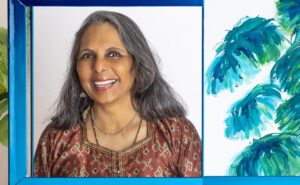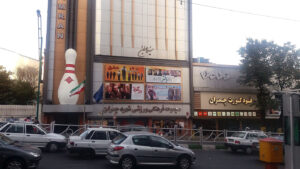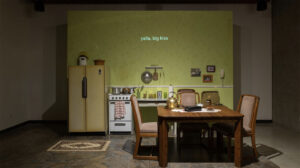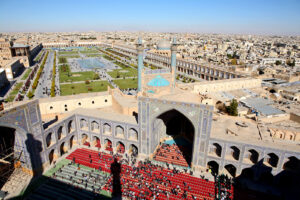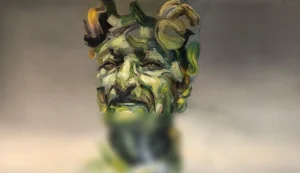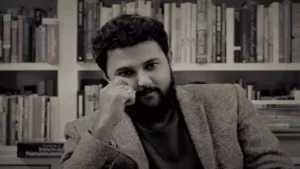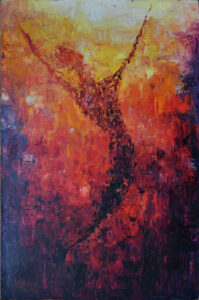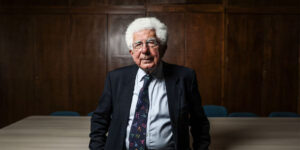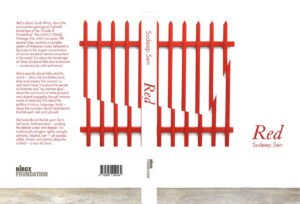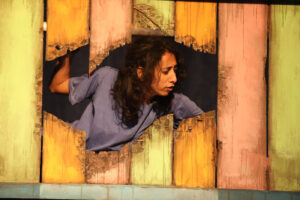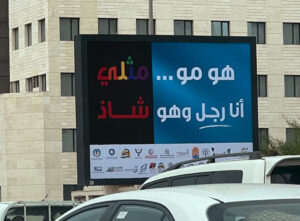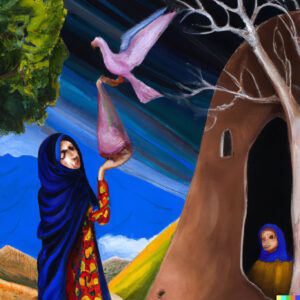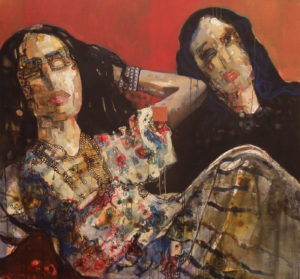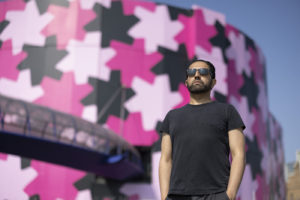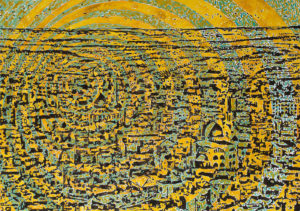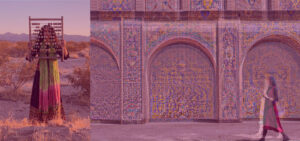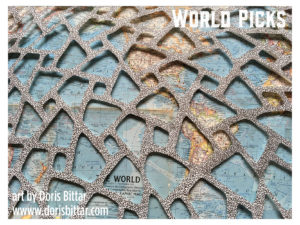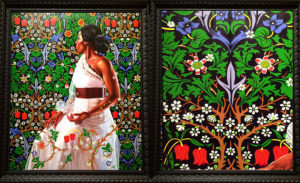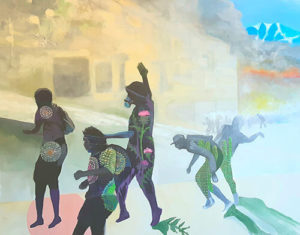A review of Mai Al-Nakib's debut novel, in which the protagonist always thought she would leave her country. The Markaz Review bookgroup discussed this novel in September 2022. To join the group, write books@themarkaz.org.
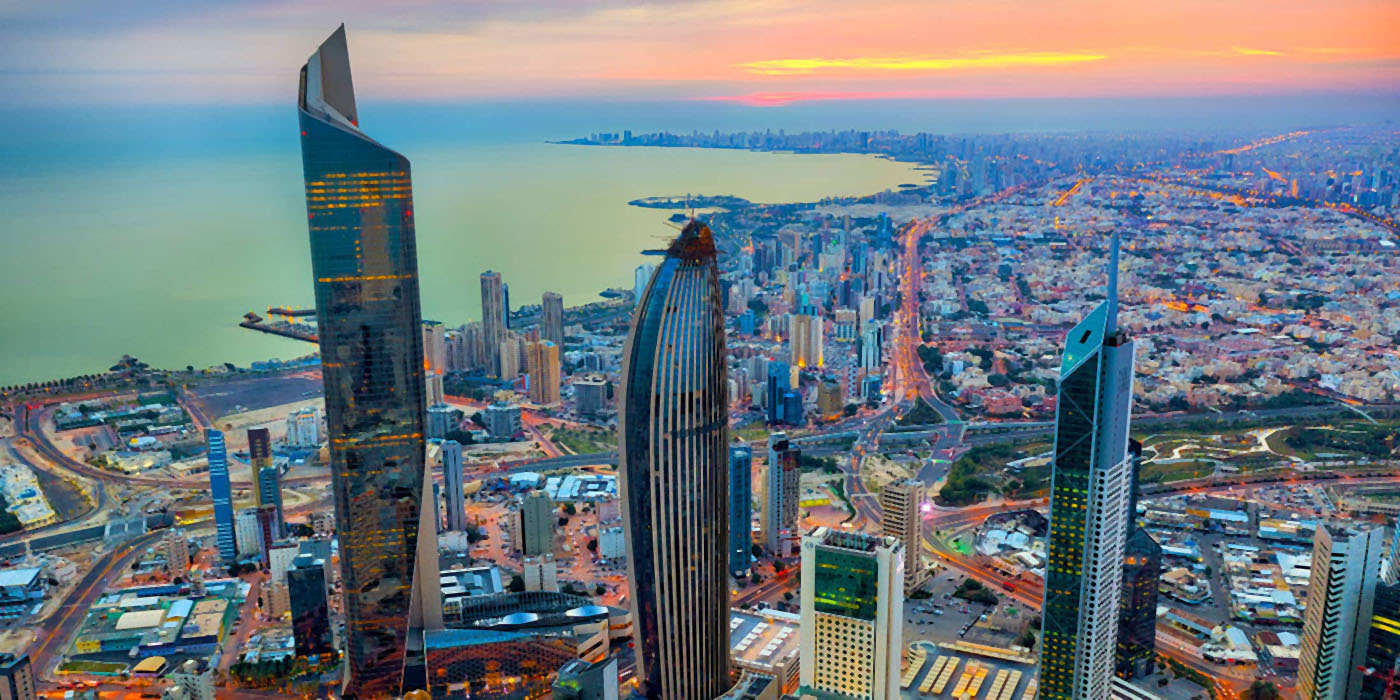
An Unlasting Home, a novel by Mai Al-Nakib
Mariner Books 2022
ISBN 9780063135093
When you live in a conservative society, you run the risk of censure. How far should a philosophy professor stick her neck out to make a point? Would you put it all on the line in the pursuit of truth or justice, or whatever informs your intent?
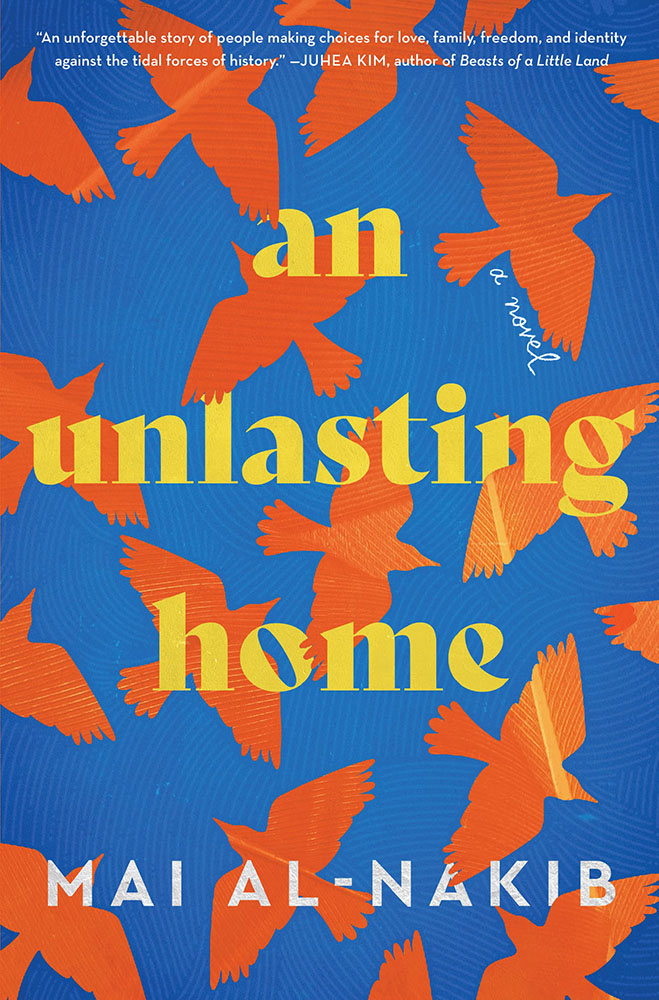
An Unlasting Home, by award-winning short story writer Mai Al-Nakib, opens in the summer of 2013. Sara Tarek Al-Ameed, a professor of philosophy at the Kuwait University for eleven years, is in the midst of preparing a paper arguing the importance of supplementing the religious curriculum with an early introduction to philosophy at the level of primary public school education in Kuwait. However, a phone recording by one of the munaqaba girls in her intro to philosophy class (in which she is heard arguing that “God is dead”) has been passed on to the most conservative member of the Kuwaiti Parliament — a Salafi, who has filed a complaint. Sara is arrested at her home and charged with blasphemy, a capital crime that comes with the threat of execution, under the newly amended Kuwaiti penal code. In the author’s note, Al-Nakib explains that although such an amendment did in fact come to pass by a wide majority of the elected parliament in 2013, the Emir of Kuwait, who holds authority over all amendments of laws, rejected it. This work of fiction, explains the author, imagines otherwise.
Kuwait is a tiny country of fewer than five million people. It drew world attention in 1990 when Iraqi forces invaded and attempted to annex it. It boasts one of the highest per capita incomes in the world that provides generous material benefits for Kuwaiti citizens — defined as those able to prove Kuwaiti ancestry prior to 1920 — and a constitution that stipulates equality without discrimination according to sex, color, language, or religion, despite a generally conservative government. The right for women to vote was officially granted in 2005, and in 2009 women were elected to parliament for the first time.
However, conservative in Kuwait, explains the novel’s protagonist at one point, “today means Islamist … Those students the Egyptian Brotherhood teachers got their paws on” are the new parliament alongside the Salafis, responsible for leading the country from a place of bikinis and cocktails at the Gazelle Club to one of niqabs and scraggly beards, “unrolled prayer mats as though prayer time were continuous, not five times a day.” Such people render the country “foreign” and barely recognizable to people like Sara, who today see Kuwait as a place where “decisions were being made in the interest of power, not posterity” and “foresight was blinded with sharpened spears tipped with oil.”
As Sara awaits trial at her Surra home, which she shares with her aging childhood minder Maria and her cook Aasif, Lola her cat and her grandmother’s pet parrot Bebe Mitu, she examines her contentious relationship with her country, even as she delays breaking the upsetting news to her brother Karim in the US, who has vowed never to return to Kuwait, and her boyfriend Karl, in Norway, and instead mines her cache of memories, unveiling a family saga spanning Lebanon, Iraq, India, the United States and Kuwait, bringing to the forefront the stories of three generations of incredible Arab women and men who sacrificed much in the pursuit of home and belonging against a backdrop of ever-changing political, social and economic events, playing out both domestically and globally.
Kuwait, a small emirate nestled between Iraq and Saudi Arabia, is situated in a section of one of the driest, least-hospitable deserts on Earth. Its shore, however, contains a deep harbor along the Persian Gulf to which people from the interior would arrive to trade with docking merchant ships. It is, here, in 1924 that Sara begins with the first of the family’s stories taking place within the old city of Kuwait, where the men were gone for most of the year, leaving the women to manage without them.
“Growing up, Sheikha rarely saw her father and brothers. Nine months of the year, they were out at sea, on the boums and baghlas of wealthy merchants, trading along the eastern coast of Africa or the western coast of India. Even during the three months of monsoon, when Sheikha’s father and brothers were back in Kuwait, they were out pearling. At the end of a summer combing oyster beds, the divers would return to shore, legs scoured with cuts, ribs visible for wives and children to count. Like most of the divers and sailors of Kuwait, Sheikha’s father was poor, in debt all his life, relying on advances from his nokhada to sustain his family.”
By the time Kuwait gains independence in 1961, this style of living will have evaporated, “leaving hardly a trace of hundreds of years of community life shaped by weather and water.”
Lulwa, Sara’s maternal grandmother, is the last of Sheikha and Qais’s children. Born into a very difficult and miserable marriage, Lulwa’s father “had the eccentric proclivities of the wealthy minus the wealth,” kept an owl in the house and spoke to it in an undecipherable code. His peculiar ways had come between Sheikha and her babies, hindering her from feeling anything towards them, “despair over her own fate smothering any shred of tenderness.” And so, by the age of 17, Sheikha decides to “sell” Lulwa off to the son of a rich Kuwaiti merchant known throughout Kuwait for date plantations in Basra and fleets of ships trading the east and west of the Indian Ocean. Luckily for Lulwa, Mubarak Al-Mustafa is a man she’s already seen and admired. The two wed and leave for India, where the Mubarak family has settled to expand their already formidable trade interests to include jewels. It is where Noura, Sara’s mother is born. Later, when Kuwait is on the verge of independence and Mubarak has moved his family back to Kuwait, he will argue that India would be the best model for Kuwait to follow. The same India he believed to be his “true home” but one, nonetheless, “that never really belonged to him” either.
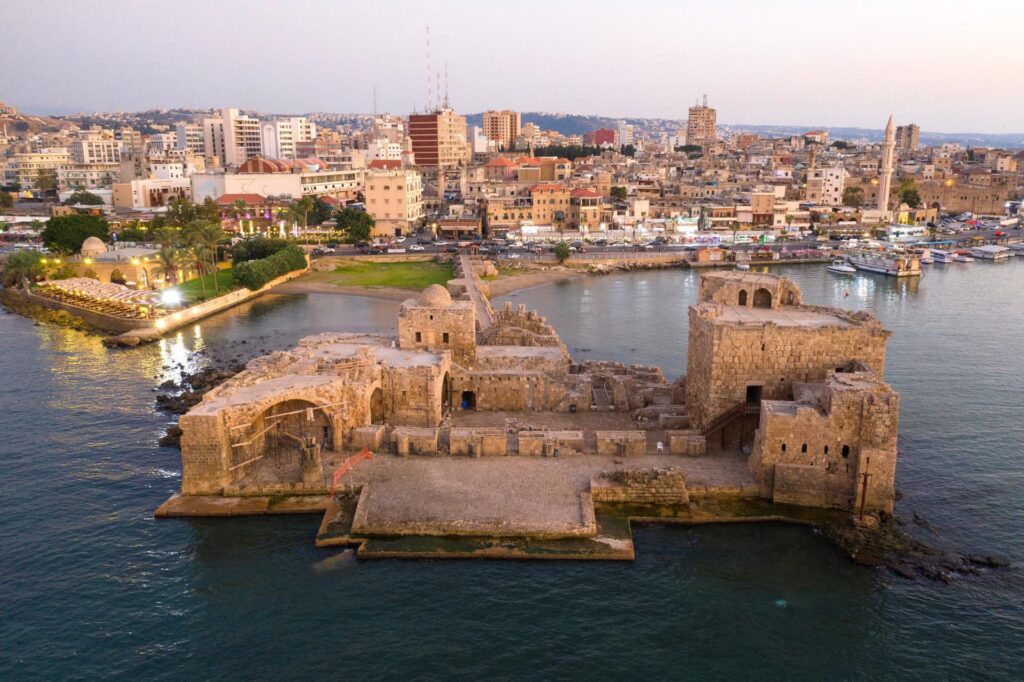
The novel then skips to Lebanon, where Sara’s paternal grandmother Yasmine, is a sixteen-year-old girl living in Saida, engulfed in grief after the sudden loss of her father, who unlike the other fathers of the conservative city of old Saida had enrolled Yasmine in the Sidon Girls’ School, established by American missionaries. Jilted by the mother of the man she loves, and fearing for the welfare of her mother and brother who are left destitute after the father’s death, Yasmine gives up her hope of university and accepts a job in Basra, in Iraq, to teach Arabic literature to primary-school students. She arrives with the advent rule of King Ghazi in Iraq and a country whose “local women, mothers of the girls she taught, had tattooed chins, covered their faces, smoked irgileh, and cackled rowdy comments across the alleyway about outsiders in their midst. “Here she comes, ladies. Swaying what God gave her. Our swan of the Tigris! How long do you think before one of our own lays claim to those pillows? The ones up front as well as that plush one in back like sambouks on the Shatt?”
It is in this same Iraq that Yasmine meets Marwan Al-Ameed, Sara’s grandfather and the son of the Pasha of Basra, and the two wed despite the reservations of Yasmine’s guardian in Basra who saw in Yasmeen “the future of Arab women — independent, fearless, shaping their lives as they desired, not into shapes determined by mullahs or kings.” When Marwan marries a second wife, and Yasmine considers leaving him to take her children back to Saida, she is advised by the same guardian to stay with him for the sake of the children because “their life without a father in Saida, children of a divorced woman would be tragic.”
And so the novel alternates its chapters between Sara and all the women who made her — her mother Noora, her grandmothers, Lulwa and Yasmine, and the ayah Maria who raised her, revealing the full history of the intertwined Al-Mustafa and Al-Ameed families who end up as neighbors in Kuwait in the 1950s. Through Sara’s first person narrative we learn of her upbringing in the lap of luxury in 1980s Kuwait, her American years spent studying in Berkeley alongside her brother Karim, and then the reasons for her move back to Kuwait despite her atypical lifestyle in contrast with the Kuwaiti girls that she teaches in the “New Kuwait” in which philosophy is “haram” and the girls are “forbidden to drive, are forced to wear black, not by law but by family dictate, more powerful than any law.”
“These girls in black and boys in white and red are the daughters and sons of recently naturalized Bedouin. They do not share Kuwait’s maritime past, and they missed out on the boom years of Kuwait’s early statehood. Theirs is a new majority –—conservative, traditional, with a sheen of religiosity — and it is not silent.” In fact, this new Kuwait is one that Sara barely recognizes, making her question the reasons that had compelled her to return and remain after years of being abroad. And yet she is hopeful that the Arab spring, which triggered a few demonstrations in Kuwait in 2011, while it flourished in other countries, has moved something stalled, “a sense that the crusty coating of religion and tradition could be sloughed off.”
What An Unlasting Home is essentially about should be quite obvious from the outset. The title of the book, taken from a sentence in James Joyce’s A Portrait of the Artist as a Young Man, colludes with the capricious notion of home. All of Al-Nakib’s characters are in constant motion across countries and continents due at times to political unrest, marriage, academic and professional pursuits as well as familial obligations. In these sections of the novel, Al-Nakib investigates the quandary of her characters: when one is born in a country but moves to another, where is one’s home country then?
As the men and women navigate their way through new environs, so does Kuwait, forced to adjust in tandem with political and economic key events both on its soil and off of it: The collapse of the pearling industry (1925); the Nakba (1948) that would herald in droves of Palestinians, who until the Iraqi invasion of Kuwait (1990) were the largest single expatriate group that helped to build the country; the discovery of oil (1938) that would skyrocket Kuwait into a thriving era in a “meteoric transformation,” especially after its independence from the British (1961); the Iranian Revolution (1979) as well as the fall of the Twin Towers (2001) by Arabs from the very country that Sara’s mother had been blaming for its stranglehold on Kuwait since its liberation; for the rise in conservatism, the change in demographics, and Kuwait’s uncharacteristic insularity. The result is a country and people strained against forces of history, identity and faith — a “bifurcated Kuwait”: “Half seafaring, half desert. Half pre-oil, half oil. Half traditional, half modern. Half cosmopolitan, half Islamist. Half democratic, half monarchist. Half consumerist, half religious. Half Kuwaiti, half non-Kuwaiti. Halves that multiplied ad infinitum. And as they multiplied — with their divisions and splits — the country disintegrated … There was no going back, but going forward was fraught with peril.”
What finally dawns on Sarah as her trial approaches is that to reach a much coveted peace, and face her own bifurcation as a Kuwaiti, she will have to first bring parts and pieces of her own experience back into alignment with her family’s past. By embracing and understanding Mama Sheikha’s and Mama Yasmine’s rage, the impotence of Mama Noora and Mama Yeliz, as well as Maria’s blinding fear for their children, Sara provides her own path with a sense of clarity, acceptance and completion — ultimately seeing only lessons that brought her to her current strength and wisdom. She embraces the fullness of her experience, now ready to face her fate, to carve out her own destiny.
“To proceed forward requires periodic turns back,” she writes. “Even if those turns are denied, even if they hurt like hell. The past persists like a wound. If it isn’t locked in place, it knocks around endlessly.”





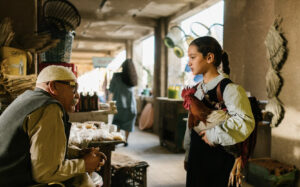

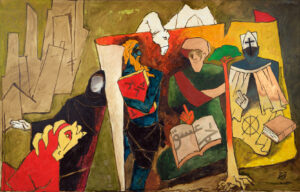




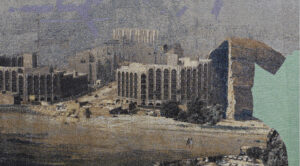

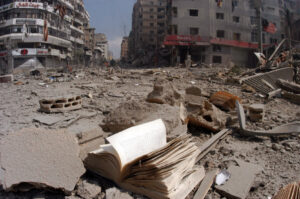









![Ali Cherri’s show at Marseille’s [mac] Is Watching You](https://themarkaz.org/wp-content/uploads/2025/09/Ali-Cherri-22Les-Veilleurs22-at-the-mac-Musee-dart-contemporain-de-Marseille-photo-Gregoire-Edouard-Ville-de-Marseille-300x200.jpg)




